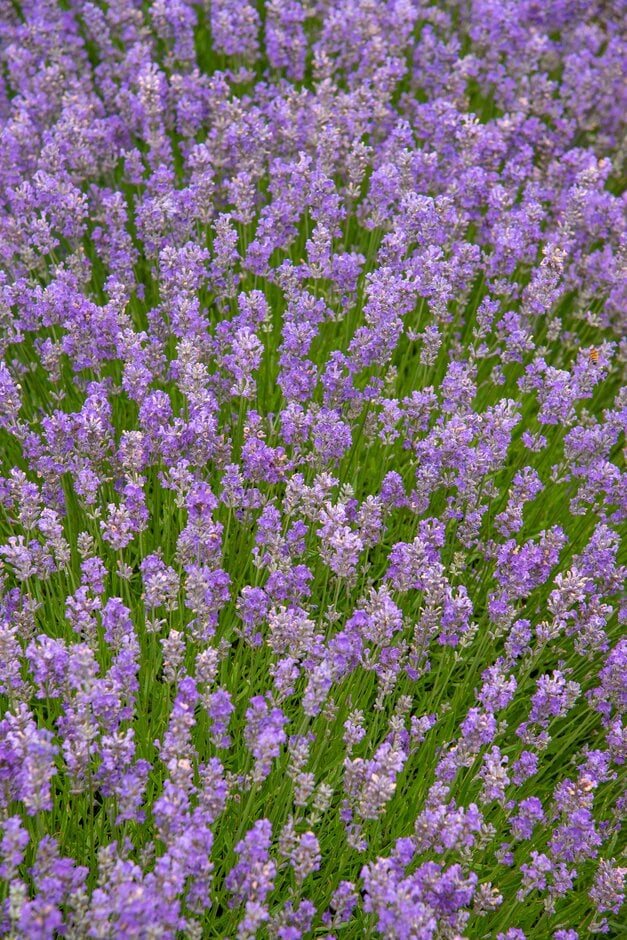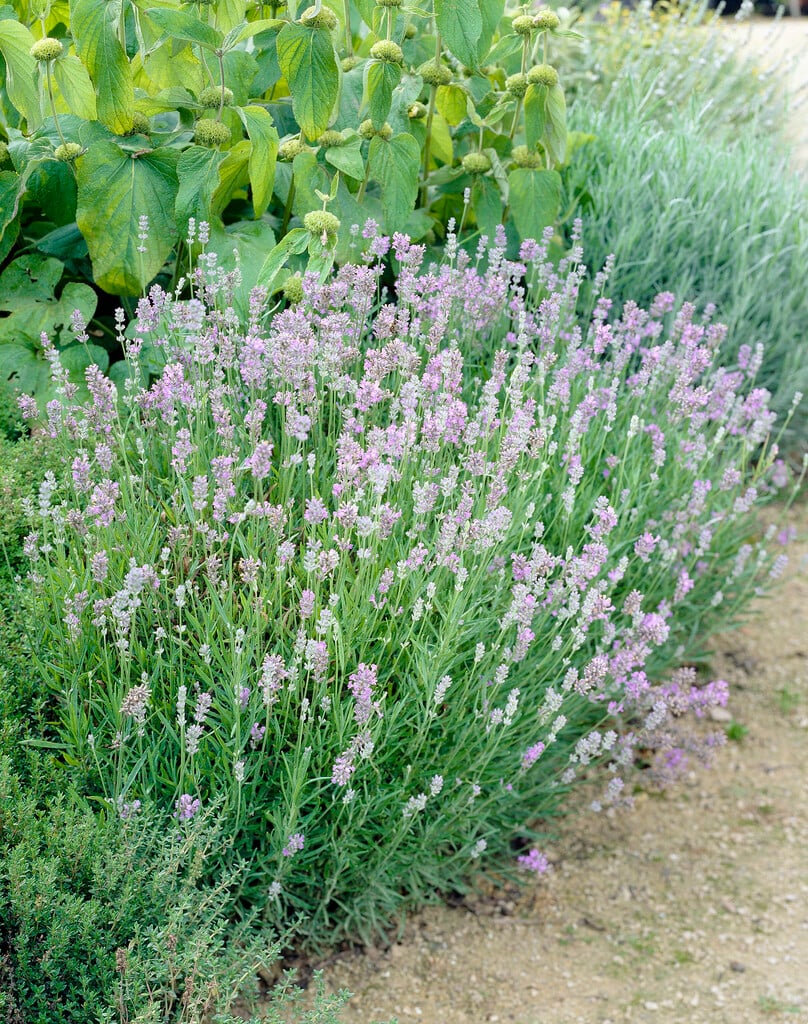Lavandula angustifolia 'Ashdown Forest'
English lavender 'Ashdown Forest'
A shrub up to 60cm high, with an erect, dense, neat habit, evergreen, aromatic, linear, green leaves up to 4cm long, and flowering stems up to 18cm long topped by spikes 2-3cm long of fragrant, soft violet flowers around midsummer
Size
Ultimate height
0.5–1 metresTime to ultimate height
2–5 yearsUltimate spread
0.5–1 metresGrowing conditions
Moisture
Well–drainedpH
Neutral, Alkaline, AcidColour & scent
| Stem | Flower | Foliage | Fruit | |
| Spring | Green | |||
|---|---|---|---|---|
| Summer | Purple | Green | ||
| Autumn | Green | |||
| Winter | Green |
Position
- Full sun
Aspect
South–facing or West–facing or East–facing
Exposure
Exposed or ShelteredDrought resistance
Yes Hardiness
H5Botanical details
- Family
- Lamiaceae
- Native to GB / Ireland
- No
- Foliage
- Evergreen
- Habit
- Bushy
- Genus
Lavandula are small aromatic evergreen shrubs with usually narrow, simple, entire, toothed or lobed leaves and small tubular flowers in dense spikes in summer
- Name status
Accepted
How to grow
Cultivation
Grow in full sun in well-drained soil; for more advice, see lavender cultivation
Propagation
Propagate by semi-ripe cuttings in late summer, or by softwood cuttings of new growth in early summer
Suggested planting locations and garden types
- Wildlife gardens
- Gravel garden
- Coastal
- Mediterranean climate plants
- Cottage and informal garden
- City and courtyard gardens
- Flower borders and beds
- Cut flowers
Pruning
Pruning group 10, in early spring or mid-spring
Pests
May be susceptible to rosemary beetle, and to cuckoo spit (froghopper or spittle bug nymphs)
Diseases
May be susceptible to grey moulds (Botrytis) and honey fungus (rarely)
Love gardening
Sign up to receive regular gardening tips, inspiration, offers and more
View our Privacy Policy
Get involved
The Royal Horticultural Society is the UK’s leading gardening charity. We aim to enrich everyone’s life through plants, and make the UK a greener and more beautiful place.

